What are the values children learn from gardening? Gardening with children teaches them many important life skills, such as responsibility, patience, and cooperation. In addition, gardening provides opportunities for children to learn about plants and nature. By spending time in the garden, children can develop a love of nature that will stay with them for a lifetime.
Gardening can teach adults important values like patience, discipline, and appreciation.
In this blog post, we’ll explore some of the most important lessons adults can learn from gardening. Keep reading to find out more!
11 Values Children Learn from Gardening
Patience
Children learn that gardening takes time and patience. They have to be careful when they are handling the plants and soil, and they need to be patient while waiting for the seeds to germinate and grow.
Reward
Children learn that gardening can be rewarding. They see the results of their hard work when the plants they have been caring for begin to grow and flower.
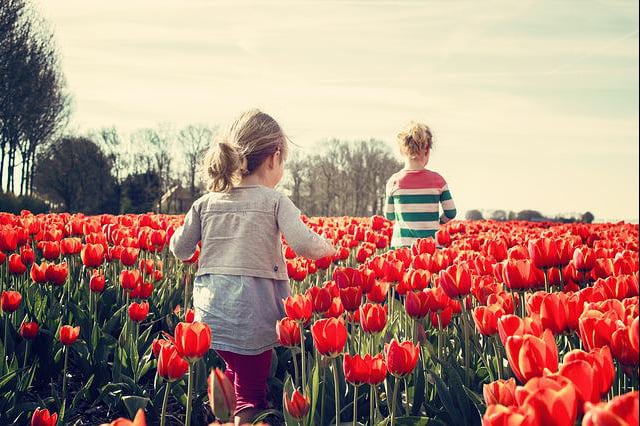
Hard Work
Children learn that gardening is hard work. They have to weed the garden, water the plants, and keep an eye out for pests. Plus, they have to do this consistently to succeed.
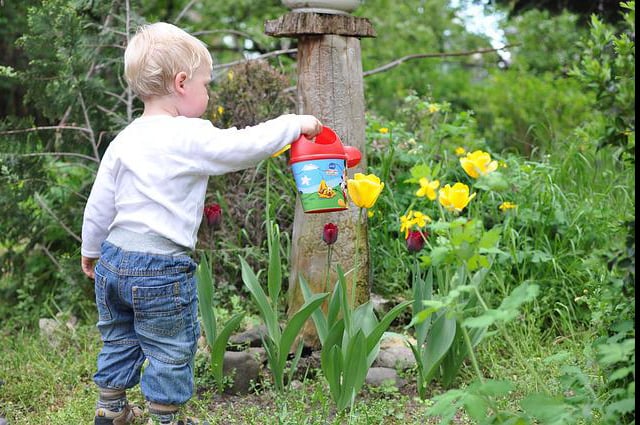
Nutrition and Health
Children learn about nutrition when they grow fruits and vegetables in their garden. They see how the food they eat starts as a seed and grows into something they can harvest and enjoy.
Growing and then cooking what they grow teaches children about the importance of healthy eating. Plus being outside in the sun and fresh air is good for their health!
Responsibility for Others
Children learn that they are responsible for taking care of the plants in their garden. They need to make sure the plants get enough water and sun, and that they are protected from pests.
This responsibility teaches children to be compassionate and caring for others. It is a valuable lesson that will stay with them throughout their lives.
The Abundance of Nature
Children learn that nature is abundant. They see that the garden is full of different types of plants, insects, and animals.
This abundance teaches children to be respectful of nature and to appreciate all the different forms it takes.
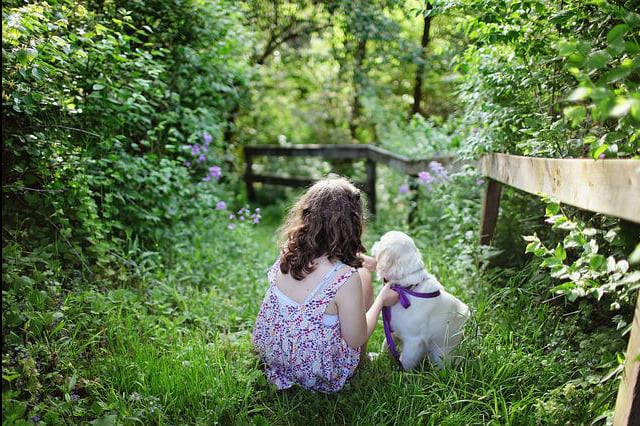
Creativity
Children use their creativity when they are gardening. They can design their garden in any way they like, and they can choose which plants to grow.
This creativity teaches children to think outside the box and to be innovative.
Self-Confidence
Children gain self-confidence when they see the results of their hard work in the garden. They are proud of their accomplishments, and they feel good about themselves.
This self-confidence carries over into other areas of their lives, such as school and sports.
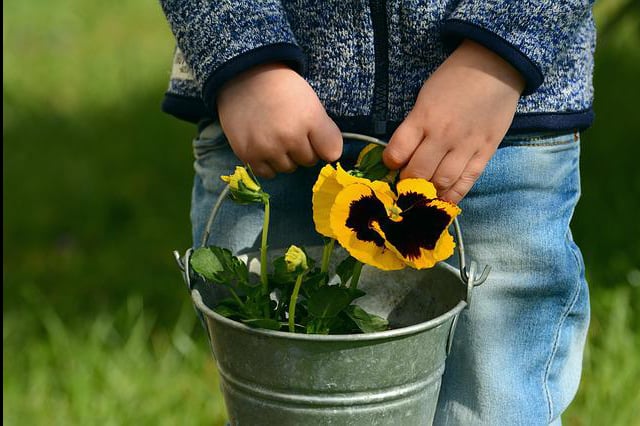
Independence
Children learn to be independent when they are gardening. They need to be able to do things on their own, such as watering the plants and weeding the garden.
This independence teaches children to be confident and self-sufficient. It is a valuable lesson that will serve them well throughout their lives.
Environmental Stewardship
Children learn to be stewards of the environment when they are gardening. They see how their actions can impact the garden, and they learn ways to take care of the earth.
This stewardship teaches children to be responsible citizens and to care for the planet. It is a lesson that will stay with them for a lifetime.
Teamwork
Children learn to work together when they are gardening. They need to cooperate to get the garden tasks done.
This teamwork teaches children to be collaborative and to value the contributions of others. It is an important lesson that will stay with them throughout their lives.
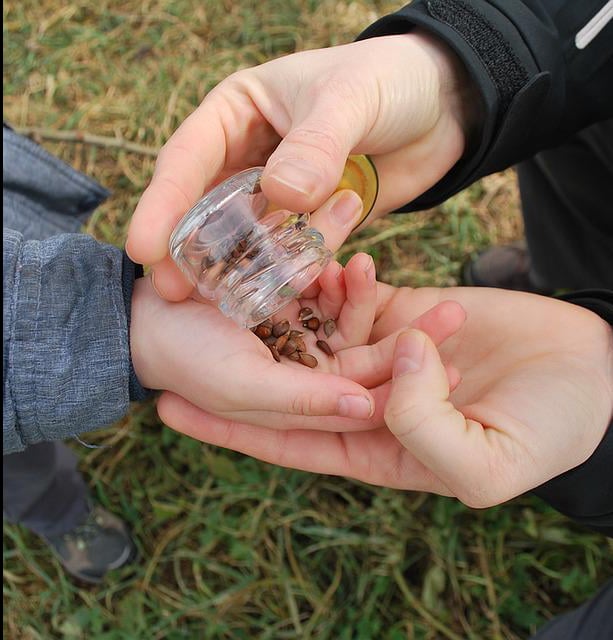
9 Life Lessons Adults Learn when They Start a Garden
Optimism
Adults learn to be optimistic when they start a garden. They need to have hope that their plants will grow, even if they don’t always see results right away.
This optimism teaches adults to be patient and to have faith. It is a valuable lesson that can be applied to other areas of their lives.
Consistency Reaps Rewards
When adults plant and care for vegetables, they learn that perseverance pays off. They need to water their plants regularly, and they need to be patient while waiting for them to grow.
This consistency reinforces in adults the importance of sticking with something even when it is difficult or gets tedious.
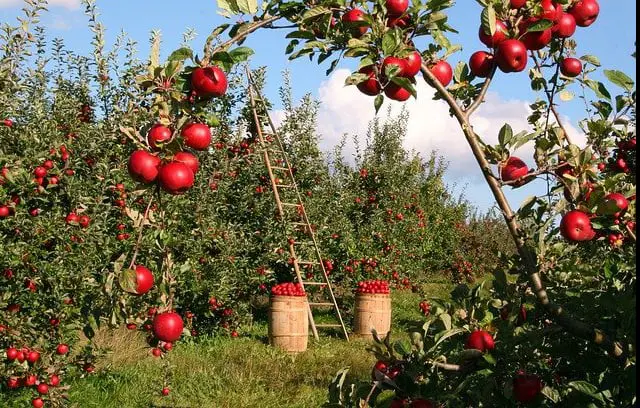
The Beauty that Surrounds You
When adults start to garden, they learn to appreciate the natural beauty around them. They see the beauty in the plants, the insects, and the wildlife.
This appreciation for nature teaches adults to be mindful and to take time to enjoy the simple things in life.

Joy in Solitude
When people garden, they learn to appreciate solitude. They need to be comfortable being alone with their thoughts, and they need to enjoy the peace.
This joy in solitude teaches adults to be content with who they are and to appreciate silence.
Pride in Good Works
When people see the results of their hard work in the garden, they feel proud. They are proud of their accomplishments, and they feel good about themselves.
This pride reminds adults to value their efforts and to take satisfaction in a job well done.
Failure Isn’t the End
When adults garden, they learn that failure is not the end. They may have plants that die, and they may make mistakes.
However, they learn from their failures and they try again. This reminds us to be resilient and never give up.
Nature Is Abundant
Gardeners discover that nature is full of life. They see the bounty of the earth, and they realize that there is enough for everyone.
This abundance teaches us to be generous and to share what we have with others.
Adaptability
Gardeners need to be adaptable when they are gardening. They need to be able to adjust their plans based on the conditions of the garden.
This adaptability teaches us to be flexible and to go with the flow. It is an important lesson for dealing with change in our lives.
Death Is Part of Life
Gardeners learn that death is part of life. They see plants die, and they may have to deal with pests.
However, they also see new life sprouting up. This teaches us that death is a natural part of life, and it is nothing to be afraid of.
Conclusion
We all have an inner gardener waiting to come out. Whether you have a green thumb or not, there are many values that you can learn from gardening. These values will stay with you for a lifetime and will help you to be a better person. Give gardening a try, and see what lessons you and your children can learn.


